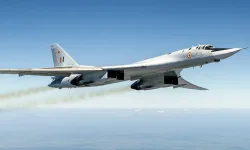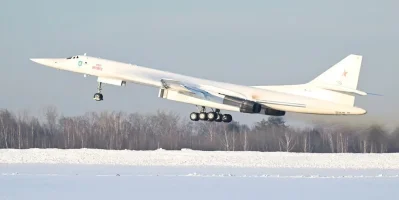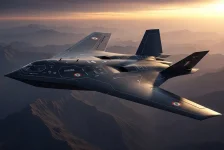- Views: 3K
- Replies: 24
A high-ranking Indian Air Force (IAF) official has revealed that India has little interest in acquiring the Russian Tu-160 strategic bomber. Despite the aircraft being indirectly offered, the IAF appears to be deterred by the anticipated high operational costs and the lack of suitable infrastructure within India to support such a fleet.
The Tu-160, known as the "White Swan" or "Blackjack" by NATO, is one of the world's largest and most powerful strategic bombers. While its advanced capabilities, including its ability to carry a range of nuclear and conventional munitions over long distances, are impressive, they come with a hefty price tag.
The IAF official indicated that the significant investment required for the maintenance, operation, and lifecycle management of these sophisticated aircraft might not be justifiable given India's current budgetary constraints and strategic priorities.
Beyond the initial acquisition cost, estimated at $163 million per unit, the expenses associated with operating the Tu-160 are substantial. Specialized training would be needed for pilots and crew to handle the aircraft's unique features, including its variable-sweep wings and complex avionics.
Furthermore, the cost of spare parts and ongoing maintenance would place a considerable burden on the defence budget.
Another major obstacle is the lack of adequate infrastructure in India to support a fleet of Tu-160 bombers. These aircraft require specialized facilities, including large hangars, extended runways, and secure locations.
India's current airbases are primarily designed for lighter, tactical aircraft, not heavy bombers like the Tu-160. Adapting existing bases or constructing new ones would entail a significant infrastructural overhaul, adding to the costs and logistical challenges.
The IAF's current focus appears to be on modernizing its existing fleet with multirole combat aircraft, enhancing its missile defence capabilities, and investing in drones and other asymmetric warfare tools that offer greater versatility and align better with contemporary warfare strategies.
The strategic need for heavy bombers like the Tu-160 does not seem to be a priority within India's current military doctrine, which emphasizes regional defence and deterrence rather than intercontinental strategic bombing capabilities.
While the Tu-160 is undoubtedly a formidable aircraft, its acquisition appears to be impractical for India at this time. The high costs, logistical challenges, and lack of suitable infrastructure, combined with the IAF's current strategic priorities, make it an unsuitable choice for India's defence needs.



